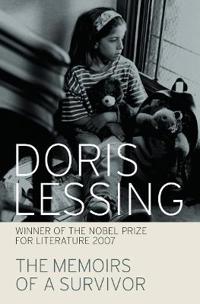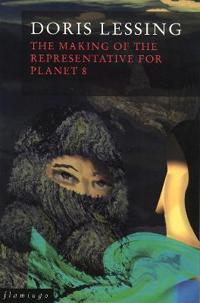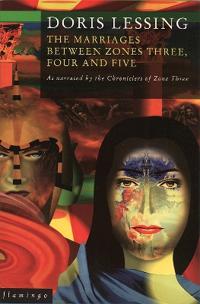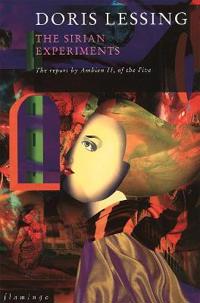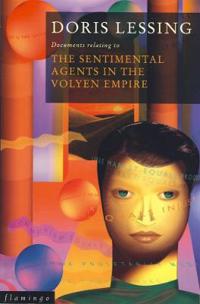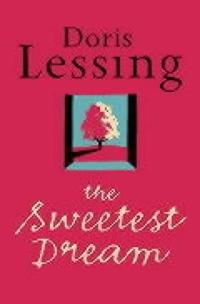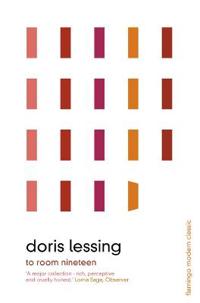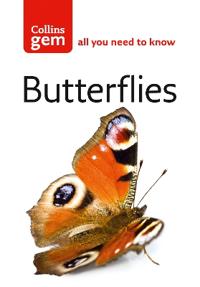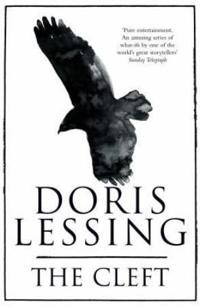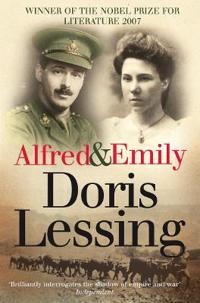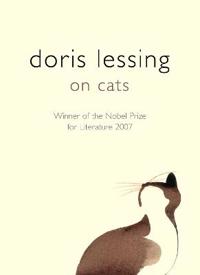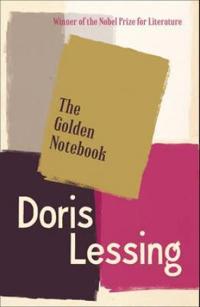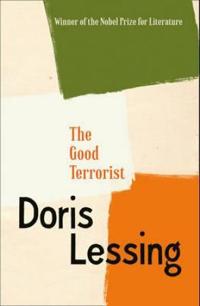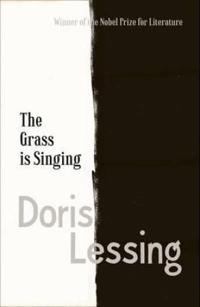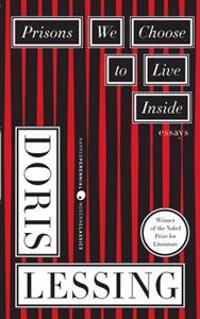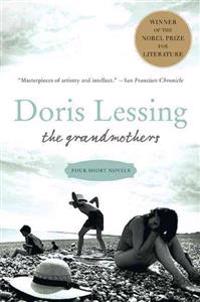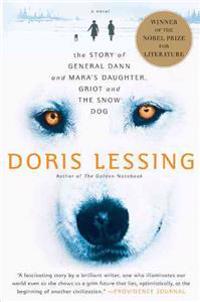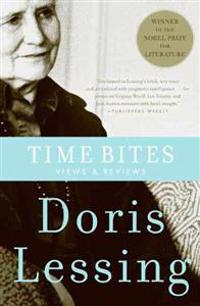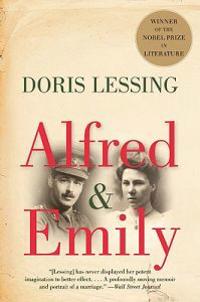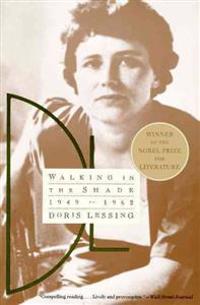Doris Lessing: Stories (Inbunden)
avDoris May Lessing, Margaret Drabble
ISBN: 9780307269881 - UTGIVEN: 200809The Golden Notebook: Perennial Classics Edition (Häftad)
avDoris May Lessing, Doris May Lessing
ISBN: 9780060931407 - UTGIVEN: 1999-02Anna is a writer, author of one very successful novel, who now keeps four notebooks. In one, with a black cover, she reviews the African experience of her earlier year. In a red one she records her political life, her disillusionment with communism. In a yellow one she writes a novel in which the he[...]
Memoirs of a Survivor (Häftad)
avDoris May Lessing
ISBN: 9780006493259 - UTGIVEN: 199507A compelling vision of a disorietating and barbaric future from Doris Lessing, winner of the Nobel Prize for Literature.[...]
Making of the Representative for Planet 8 (Häftad)
avDoris May Lessing
ISBN: 9780006547181 - UTGIVEN: 199405The fourth in Doris Lessing's visionary novel cycle "Canopus in Argos: Archives". It is a mix of fable, futuristic fantasy and pseudo-documentary accounts of 20th-century history.[...]
Marriages Between Zones Three, Four and Five (Häftad)
avDoris May Lessing
ISBN: 9780006547204 - UTGIVEN: 199405From Doris Lessing, winner of the Nobel Prize for Literature, this is the second instalment in the visionary novel cycle 'Canopus in Argos: Archives'.[...]
Sirian Experiments (Häftad)
avDoris May Lessing
ISBN: 9780006547211 - UTGIVEN: 199405The third in Doris Lessing's visionary novel cycle "Canopus in Argos: Archives". It is a mix of fable, futuristic fantasy and pseudo-documentary accounts of 20th-century history.[...]
The Sentimental Agents in the Volyen Empire (Pocket)
avDoris May Lessing
ISBN: 9780006547228 - UTGIVEN: 2008-05From Doris Lessing, winner of the Nobel Prize for Literature, the fifth and final instalment in the visionary novel cycle 'Canopus in Argos: Archives'.[...]
Ben, in the world (Pocket)
avDoris May Lessing
ISBN: 9780006552291 - UTGIVEN: 2001-04-02Many will recall the powerful impact The Fifth Child, Doris Lessing's 1988 novel, made on publication. Its account of idyllic marital and parental bliss irredeemably shattered by the arrival of the feral fifth child of the Lovatts made for unnerving and compulsive reading. That child, Ben, now grown[...]
The Sweetest Dream (Storpocket)
avDoris May Lessing
ISBN: 9780006552307 - UTGIVEN: 200207Nobel Prize for Literature winner Doris Lessing tackles the 1960s and their legacy head-on in one of her most involving, personal, political novels. It's the morning of the 1960s and it's suppertime at Freedom Hall, the most welcoming household in north London. Frances Lennox stands at her stove, pr[...]
To Room Nineteen (Häftad)
avDoris May Lessing
ISBN: 9780007143009 - UTGIVEN: 200208From "To Room Nineteen", a study of a controlled middle class marriage "grounded in intelligence", to the shocking "A Woman on the Roof", where a workman becomes obsessed with a pretty sunbather, this collection of stories bears witness to Doris Lessing's perspective on the human condition.[...]
Butterflies (Häftad)
avDoris May Lessing
ISBN: 9780007178520 - UTGIVEN: 200404The ideal portable companion, the world-renowned Collins Gem series returns with a fresh new look and updated material. This is the perfect pocket guide for nature enthusiasts keen to identify the most commonly seen butterflies and moths in Britain and northern Europe. Authoritative text, beautiful [...]
Time Bites (Pocket)
avDoris May Lessing
ISBN: 9780007179862 - UTGIVEN: 2005-10-17Assembled here for the first time in book form are the very best of several decades' worth of occasional writings from perhaps the best-loved and most-admired of Britain's great female writers. A selection of the very best of Doris Lessing's essays, never before collected together and published in b[...]
Cleft (Häftad)
avDoris May Lessing
ISBN: 9780007233441 - UTGIVEN: 200801Doris Lessing, winner of the Nobel Prize for Literature, invites us to imagine a mythical society free from sexual intrigue, free from jealousy, free from petty rivalries: a society free from men.[...]
Alfred and Emily (Häftad)
avDoris May Lessing
ISBN: 9780007240173 - UTGIVEN: 200903Doris Lessing's first book after winning the Nobel Prize for Literature revisits her childhood in Southern Africa and the lives, both fictional and factual, that her parents led.[...]
On Cats (Häftad)
avDoris May Lessing
ISBN: 9780007285518 - UTGIVEN: 200810A collection of charming and celebrated writings about cats, from Doris Lessing, winner of the Nobel Prize for Literature.[...]
The Golden notebook (Pocket)
avDoris May Lessing
ISBN: 9780007498772 - UTGIVEN: 201301The landmark novel of the Sixties - a powerful account of a woman searching for her personal, political and professional identity while facing rejection and betrayal. In 1950s London, novelist Anna Wulf struggles with writer's block. Divorced with a young child, and fearful of going mad, Anna record[...]
The Good Terrorist (Storpocket)
avDoris May Lessing
ISBN: 9780007498789 - UTGIVEN: 201301A group of squatters rebel against Mrs Thatcher and erupt into violence in this politicised novel from the author of 'The Golden Notebook'. In a London squat a band of bourgeois revolutionaries are united by a loathing of the waste and cruelty they see around them. These maladjusted malcontents try [...]
The Grass is Singing (Storpocket)
avDoris May Lessing
ISBN: 9780007498802 - UTGIVEN: 201301The Nobel Prize-winner Doris Lessing's first novel is a taut and tragic portrayal of a crumbling marriage, set in South Africa during the years of Arpartheid. Set in Rhodesia, 'The Grass is Singing' tells the story of Dick Turner, a failed white farmer and his wife, Mary, a town girl who hates the b[...]
Prisons We Choose to Live Inside (Häftad)
avDoris May Lessing
ISBN: 9780060390778 - UTGIVEN: 198710The celebrated author explores new ways to view ourselves and the society we live in, and gives us fresh answers to such enduring questions as how to think for ourselves and understand what we know.[...]
The Grandmothers: Four Short Novels (Häftad)
avDoris May Lessing
ISBN: 9780060530112 - UTGIVEN: 200501The critically lauded author of The Sweetest Dream explores the rich complexities of the human condition in four short novels that include the title novella, Victoria and Staveneys, The Reason for It, and A Love Child, in which a soldier becomes convinced that a child resulted from his brief wartime[...]
The Story of General Dann and Mara's Daughter, Griot and the Snow Dog (Häftad)
avDoris May Lessing
ISBN: 9780060530136 - UTGIVEN: 200612Dann is now all grown up and is traveling with a snow dog, hunting for knowledge and grappling with despair, while Mara's daughter and Griot embark on a strange adventure, discovering that love and song can bring happiness, in the sequel to Mara and Dann. Reader's Guide available. Reprint. 15,000 fi[...]
Time Bites: Views and Reviews (Häftad)
avDoris May Lessing
ISBN: 9780060831417 - UTGIVEN: 200611A collection of literary essays and criticism by the award-winning author of The Golden Notebook and The Sweetest Dream includes her reviews of classic books, commentaries on world politics, and insights into the role of personal experience in the creation of literature. Reprint. 10,000 first printi[...]
Alfred and Emily (Häftad)
avDoris May Lessing
ISBN: 9780060834890 - UTGIVEN: 2009-10In this profoundly moving book, Nobel Laureate Doris Lessing explores the lives of her parents, each irrevocably damaged by the Great War. In the fictional first half of Alfred and Emily, she imagines the happier lives her parents might have made for themselves had there been no war. This is followe[...]
Under My Skin: Volume One of My Autobiography, to 1949 (Häftad)
avDoris May Lessing
ISBN: 9780060926649 - UTGIVEN: 1995-09"I was born with skins too few. Or they were scrubbed off me by...robust and efficient hands." The experiences absorbed through these "skins too few" are evoked in this memoir of Doris Lessing's childhood and youth as the daughter of a British colonial family in Persia and Southern Rhodesia Honestly[...]
Walking in the Shade (Pocket)
avDoris May Lessing
ISBN: 9780060929565 - UTGIVEN: 1998-10The second volume of Doris Lessing's extraordinary autobiography covers the years 1949-62, from her arrival in war-weary London with her son, Peter, and the manuscript for her first novel, The Grass is Singing, under her arm to the publication of her most famous work of fiction, The Golden Notebook.[...]



